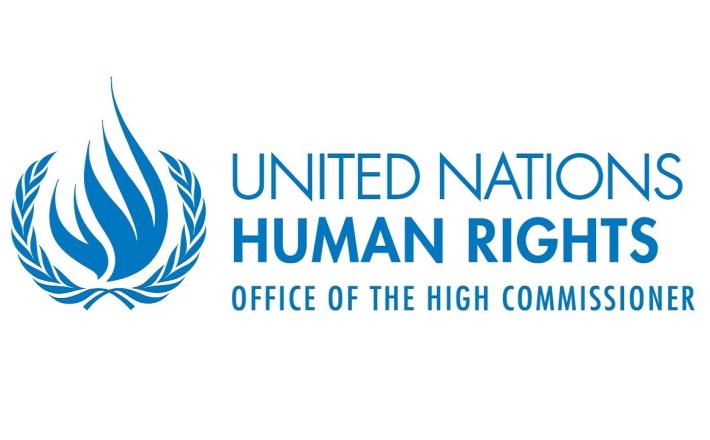Raising women’s voices and leadership in COVID-19 policies
Source: UNHCHR
GENEVA (22 April 2020) – The UN Women’s rights committee calls on governments and multilateral institutions to ensure women’s equal representation in formulating responses to COVID-19 and strategies to recover from the crisis.
The UN Committee on the Elimination of Discrimination against Women (CEDAW) has issued detailed guidance on a range of measures that governments should take to uphold women’s rights as they respond to the COVID-19 pandemic.
The guidance emphasizes that COVID-19 response and post-crisis recovery plans should promote women’s economic empowerment and address gender inequalities in employment and social protection systems. Moreover, governments must ensure women’s equal and meaningful participation in the formulation of such plans and in decision-making.
“We welcome the leadership shown by many women leaders in the present crisis in ensuring effective measures to protect their populations,” said Committee Chair Hilary Gbedemah. “The Committee would like to hear more women’s voices in rebuilding the economy and society after the pandemic,” Gbedemah added.
Other measures in the guidance include addressing women’s increased health risks as primary caregivers for children and sick family members by ensuring early detection and treatment of COVID-19; providing confidential access to sexual and reproductive health services through easy-to-access procedures such as online prescriptions for contraceptives; ensuring continuous education through accessible educational tools; and facilitating access to protection orders and safe shelters for women and girls who are victims or at risk of gender-based violence.
“Because of pre-existing gender inequalities and deep-rooted discrimination, the consequences of the current crisis have affected women in a disproportionate manner, while at the same time placing increased responsibilities on women’s shoulders at home, in the health workforce and in other sectors,” said Gbedemah. “Media reports have shown that incidents of gender-based violence against women and girls have risen due to domestic tensions resulting from confinement, pressure of home schooling and job losses.”
“The Committee also fears that the restrictive measures can lead to compounded and multiple discrimination against women belonging to disadvantaged and marginalized groups,” said Gbedemah.
The Committee further recommends targeted strategies for governments to mitigate the devastating impact of the COVID-19 pandemic on older women, women and girls with disabilities, migrant, refugee and internally displaced women, indigenous women and girls and those belonging to minorities, women in detention, as well as lesbian, bisexual and transgender women.
“In their response to the crisis, States parties to the Convention on the Elimination of All Forms of Discrimination against Women must be guided by its principles of non-discrimination and gender equality, as well as by the principle of ‘Leave no one behind’ of the Sustainable Development Goals,” Gbedemah said.
The Committee’s full guidance is available online.
The Committee has also issued a statement calling for joint action in times of COVID-19. Read the statement here.
Source: The Office of the United Nations High Commissioner for Human Rights (UNHCHR)

GENEVA (22 April 2020) – The UN Women’s rights committee calls on governments and multilateral institutions to ensure women’s equal representation in formulating responses to COVID-19 and strategies to recover from the crisis.
The UN Committee on the Elimination of Discrimination against Women (CEDAW) has issued detailed guidance on a range of measures that governments should take to uphold women’s rights as they respond to the COVID-19 pandemic.
The guidance emphasizes that COVID-19 response and post-crisis recovery plans should promote women’s economic empowerment and address gender inequalities in employment and social protection systems. Moreover, governments must ensure women’s equal and meaningful participation in the formulation of such plans and in decision-making.
“We welcome the leadership shown by many women leaders in the present crisis in ensuring effective measures to protect their populations,” said Committee Chair Hilary Gbedemah. “The Committee would like to hear more women’s voices in rebuilding the economy and society after the pandemic,” Gbedemah added.
Other measures in the guidance include addressing women’s increased health risks as primary caregivers for children and sick family members by ensuring early detection and treatment of COVID-19; providing confidential access to sexual and reproductive health services through easy-to-access procedures such as online prescriptions for contraceptives; ensuring continuous education through accessible educational tools; and facilitating access to protection orders and safe shelters for women and girls who are victims or at risk of gender-based violence.
“Because of pre-existing gender inequalities and deep-rooted discrimination, the consequences of the current crisis have affected women in a disproportionate manner, while at the same time placing increased responsibilities on women’s shoulders at home, in the health workforce and in other sectors,” said Gbedemah. “Media reports have shown that incidents of gender-based violence against women and girls have risen due to domestic tensions resulting from confinement, pressure of home schooling and job losses.”
“The Committee also fears that the restrictive measures can lead to compounded and multiple discrimination against women belonging to disadvantaged and marginalized groups,” said Gbedemah.
The Committee further recommends targeted strategies for governments to mitigate the devastating impact of the COVID-19 pandemic on older women, women and girls with disabilities, migrant, refugee and internally displaced women, indigenous women and girls and those belonging to minorities, women in detention, as well as lesbian, bisexual and transgender women.
“In their response to the crisis, States parties to the Convention on the Elimination of All Forms of Discrimination against Women must be guided by its principles of non-discrimination and gender equality, as well as by the principle of ‘Leave no one behind’ of the Sustainable Development Goals,” Gbedemah said.
The Committee’s full guidance is available online.
The Committee has also issued a statement calling for joint action in times of COVID-19. Read the statement here.
Source: The Office of the United Nations High Commissioner for Human Rights (UNHCHR)